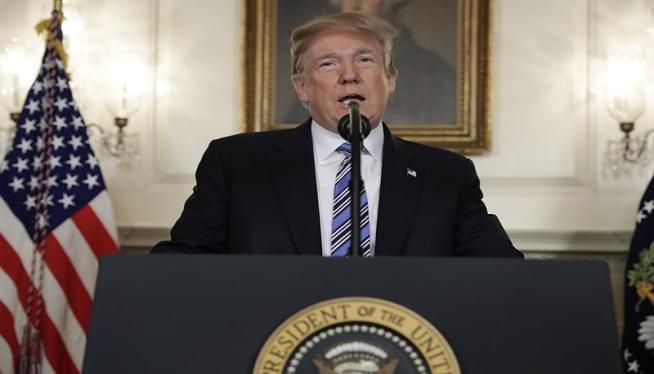WASHINGTON — President Donald Trump will speak Wednesday on immigration and gang violence on New York’s Long Island, where MS-13 has been blamed for some two dozen killings in the past two years.
Trump has used the violence to bolster his immigration policies, including a border wall with Mexico, the implementation of tougher travel restrictions and the hiring of more immigration officers. He’s also argued for loosening restrictions on law enforcement, encouraging police officers whom he calls “rough guys.”
“Please don’t be too nice,” he told law enforcement officials in a similar trip he made to Long Island last July.
Trump will also attend a fundraiser in his hometown of New York City on Wednesday.
Last week, Trump used the word “animals” to describe some people who enter the country illegally, in response to a comment about MS-13. The president says he will continue to use the term in referring to the gang.
The White House also released a fact sheet Monday morning titled “WHAT YOU NEED TO KNOW ABOUT THE VIOLENT ANIMALS OF MS-13.”
MS-13, or the Mara Salvatrucha, is believed by federal prosecutors to have thousands of members across the U.S., primarily emigrants from Central America. It has a stronghold in Los Angeles, where it emerged in the 1980s as a neighborhood street gang, but it also has wreaked violence in cities and suburbs across the U.S., including Long Island.
Many teenagers on Long Island have been held on gang accusations, swept up in various federal investigations into MS-13 activity there after an explosion of violence.
But federal and state authorities have declined repeated requests for even basic information in the sweep that is made public in most law enforcement operations, such as the names of those arrested and the crimes they are accused of committing
Immigration advocates say some teenagers arrested in the crackdowns in New York and California have been unfairly tied to gangs and wrongly held at detention centers.
Copyright 2018 The Associated Press. All Rights Reserved. This material may not be published, broadcast, rewritten, or redistributed. (Photo: AP)





















